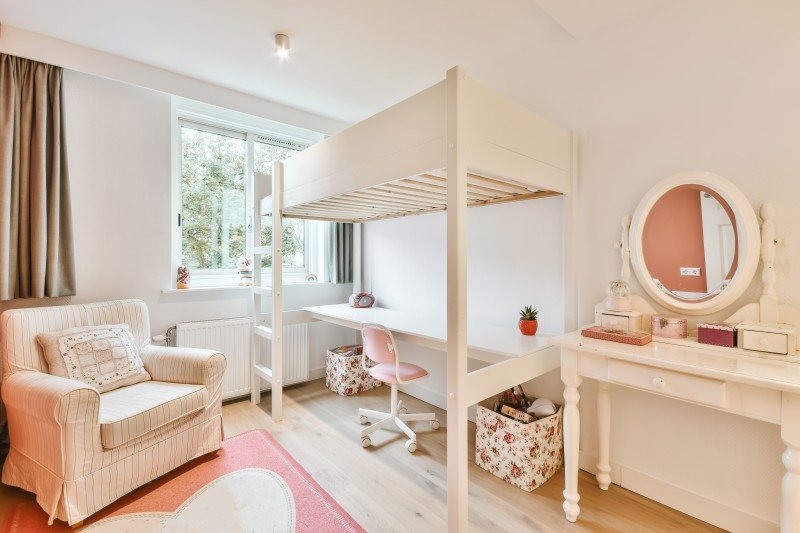This Story Behind Bunk Beds Sale Can Haunt You Forever!
Bunk Beds Sale: A Comprehensive Guide to Choosing the Right Bunk Bed for Your Home
Bunk beds have long been a staple in children's bedrooms, offering a combination of space-saving performance and enjoyable. Whether accommodating brother or sisters, good friends on slumber parties, or merely maximizing a playroom, bunk beds have actually become a necessary aspect in modern-day household homes. As sales on bunk beds rise, it becomes progressively vital for consumers to make informed choices when buying one. This post will cover the essentials of acquiring a bunk bed, from types to security features, in addition to suggestions for maintaining the integrity of your financial investment.
Kinds Of Bunk Beds
When thinking about a bunk bed sale, it's important to understand the various styles offered on the market. Below are the most typical types:
Traditional Bunk Beds: These include two beds stacked one above the other, sharing a single frame. Recommended Web page are frequently the most economical alternative.
L-Shaped Bunk Beds: This style features one bed placed vertically and another horizontally. This arrangement produces extra space beneath the upper bed, which can be utilized for storage or a backyard.
Lofted Beds: Similar to traditional bunk beds but without any lower bed. Rather, the space underneath can be made use of for a desk, play area, or extra storage.
Triple Bunk Beds: For households with a bigger number of children or frequent pajama parties, triple bunk beds provide three sleeping locations in a space-efficient design.
Futon Bunk Beds: These styles merge bunk beds and futon sofas. The bottom section converts into a separate seating area, boosting functionality.
Convertible Bunk Beds: These beds can be separated into two individual beds, making them flexible as children's needs change with time.
Table 1: Comparison of Bunk Bed Types
Type
Description
Space Efficiency
Extra Features
Standard Bunk Bed
Two beds stacked vertically
High
Simplest style
L-Shaped Bunk Bed
One vertical and one horizontal bed
Moderate
Play or storage space
Lofted Bed
Elevated bed with open space below
High
Work/play location
Triple Bunk Bed
Three stacked beds
Really High
Accommodates more users
Futon Bunk Bed
Bunk bed with a convertible futon
High
Multi-functional
Convertible Bunk Bed
Can be split into two separate beds
Moderate
Flexibility & & durability
Safety Features to Consider
Security is vital when investing in a bunk bed. Below are key security features to search for:
Guardrails: Adequate guardrails must exist on both sides of the upper bunk to avoid falls. They ought to be at least 5 inches greater than the bed mattress.
Ladder Design: Look for strong, broad ladders with slip-resistant rungs. Ensure that the angle is not too steep for easy gain access to.
Stability: Ensure the bed is built with strong materials, such as strong wood or heavy-duty metal. The bed ought to not wobble when in use.
Weight Limit: Check the weight capacity of the bunk bed to ensure it can accommodate the intended users safely.
Product Safety: If possible, choose beds made from non-toxic products or those meeting security requirements for kids's furnishings.
Table 2: Essential Safety Features
Feature
Description
Importance
Guardrails
Sides of upper bed to avoid falls
Important for kid security
Ladder Design
Solid, slip-resistant rungs
Help safe and easy access
Stability
Develop quality to avoid wobbling
Ensures security and longevity
Weight Limit
Maximum weight capability
Avoids mishaps
Product Safety
Non-toxic, safe products
Protects children's health
Maintenance Tips for Bunk Beds
To extend the life of your bunk bed and guarantee ongoing security, consider the following upkeep ideas:
Regular Inspections: Periodically inspect the structure for loose screws, bolts, or any signs of wear. Tighten up fasteners as needed.
Tidy Periodically: Dust and clean the surface areas routinely. Usage appropriate cleaners that won't harm the surface.
Inspect Weight Limits: Be conscious of weight limits, particularly with older children or adults who may want to utilize the upper bunk.
Avoid Climbing on Guardrails: Educate children not to utilize guardrails for climbing up or playing to lower the danger of accidents.
Frequently Asked Questions (FAQs)
Q1: What is the age limitation for kids to safely use bunk beds?A: While it varies by the maker, numerous recommend that kids under 6 should not oversleep the upper bunk due to security issues.
Q2: How can moms and dads prevent hazardous climbing?A: Setting clear rules about bunk bed use and monitoring kids can assist. Additionally, using a bed camping tent can prevent climbing while creating a fun sleep environment.
Q3: What should I think about when embellishing a room with bunk beds?A: Ensure there is sufficient space around the bunk bed for safe motion, and make use of the design to produce individualized areas for each child.
Q4: Is a lofted bed suitable for older children?A: Yes, lofted beds can be ideal for older children as long as they fulfill security requirements and the kid is responsible enough to utilize them safely.
Bunk beds serve a practical purpose while adding a component of fun to a kid's bedroom. As sales of bunk beds continue to increase, mindful consideration of types, security functions, and maintenance practices is important for parents and caretakers. By comprehending these crucial aspects, families can find the ideal bunk bed for their home, ensuring both usefulness and security for years to come. Whether it's for siblings sharing a room or creating a comfortable slumber party space, a well-chosen bunk bed can supply pleasure and usefulness, making it a worthwhile investment.
